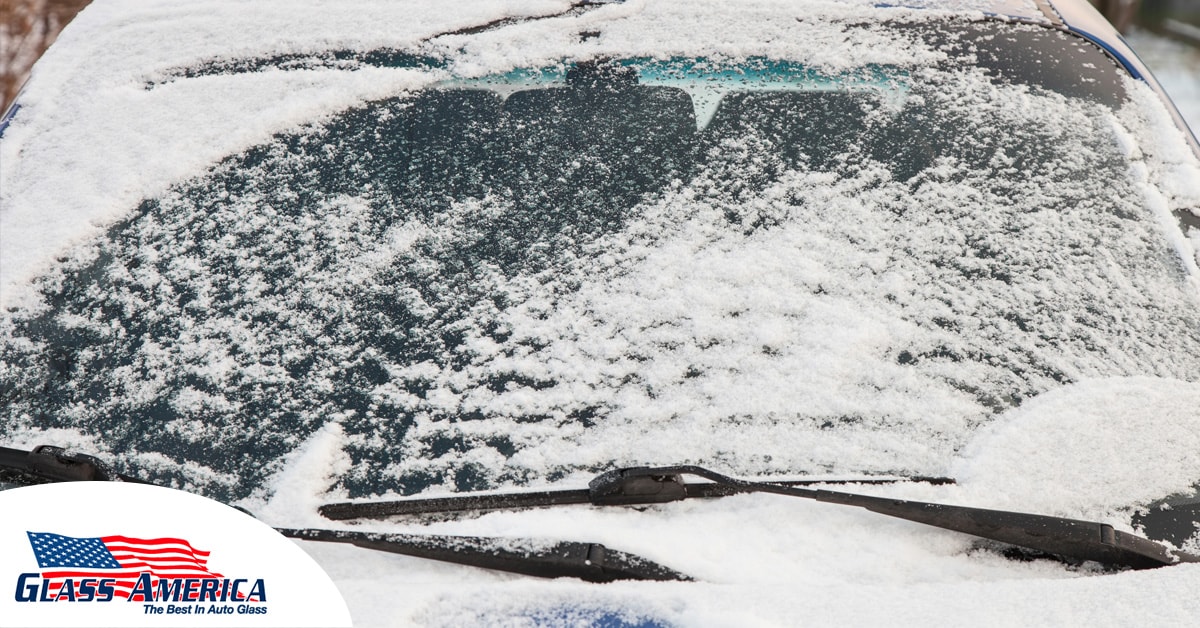Hurdling into the winter season is much safer with a clear reliable sturdy windshield. The vast majority of drivers in cold climates wake up early in the morning to find a fierce layer of frost covering the car windshield and side and rear windows. More often than not, this happens only when we have just enough time to make it to our destination without being late. If you are one of these winter drivers, it's likely you have already equipped your car with an ice scraper or an old credit card to manage these frigid frustrations. Snow, sleet and slush claim the streets as we all bundle up and hit the highway on the way to work. But other than keeping an ice scraper handy, what do you really know about winter windshield care and the risks to your auto glass in extremely cold temperatures?
Winter Windshield Care
The last place you want to end up in below freezing weather is standing on the side of the road with a cracked windshield that could have been prevented. This is why it is crucial to check your car's windshield, back glass and windows for cracks or chips and have them repaired before the snow starts to fall. For more car safety tips, check out the list below to stay safe and warm in chilly conditions.
- Keep an ice scraper and a pair of gloves in your vehicle. Be sure you remove enough ice or snow to ensure visibility through the windshield, back glass and side windows before setting out on the roads.
- Leave your windshield wipers in the out and up position when you park your car, and do not attempt to use them to wipe the ice and frost from the windshield before manually scraping it. This will damage the wipers and is not a quick or effective solution to defrosting the glass.
- Consider getting a full car cover or even just a windshield snow cover to avoid frost and snow accumulation on the windshield altogether.
- Winter windshield care is essential to keeping your car in good shape and getting you where you need to go no matter the weather.
Save Money with Proactive Repairs
Headed into winter with chips and cracks in your windshield? We strongly advise against this risky decision. According to the Motor Industry Research Association, "Studies show a chip is 60 percent more likely to crack at 32 degrees Fahrenheit than at non-freezing temperatures. At 14 degrees or below, a chip is 80 percent more likely to spread than in warm driving weather." This being said, it is cheaper and easier to have cracks and chips in your windshield repaired before the problem gets worse. Otherwise, you may just end up paying for an entire windshield replacement.
How does temperature affect your windshield?
Auto glass expands and contracts due to sudden fluctuations in temperature, and there is less of a chance for damage to occur if you avoid sudden temperature changes that put stress on the glass. If you've ever placed scorching hot glassware under cold sink water and watched it shatter, just imagine this happening to your front windshield. Highlighted below are a few rules to follow that will prevent your windshield from breaking.
- Allow the windshield to warm up gradually, using the defroster on a lower level of heat for a longer period of time, rather than blasting the heat.
- Never pour boiling water on your windshield, thinking it will defrost faster. This can and will cause damage to the glass.
- Most importantly, repair any chips or cracks prior to driving through winter conditions.
The cold air from outside competes against the heat coming from inside your vehicle, and the balance of the two needs to equalize, slowly, without shocking the glass, to ensure no breakage occurs. If you've heard enough and you're in need of a mobile auto glass repair technician to come to you and fix your chips or cracks fast, call Glass America at (877) 220-1724 to take care of your repairs before the season gets underway.
